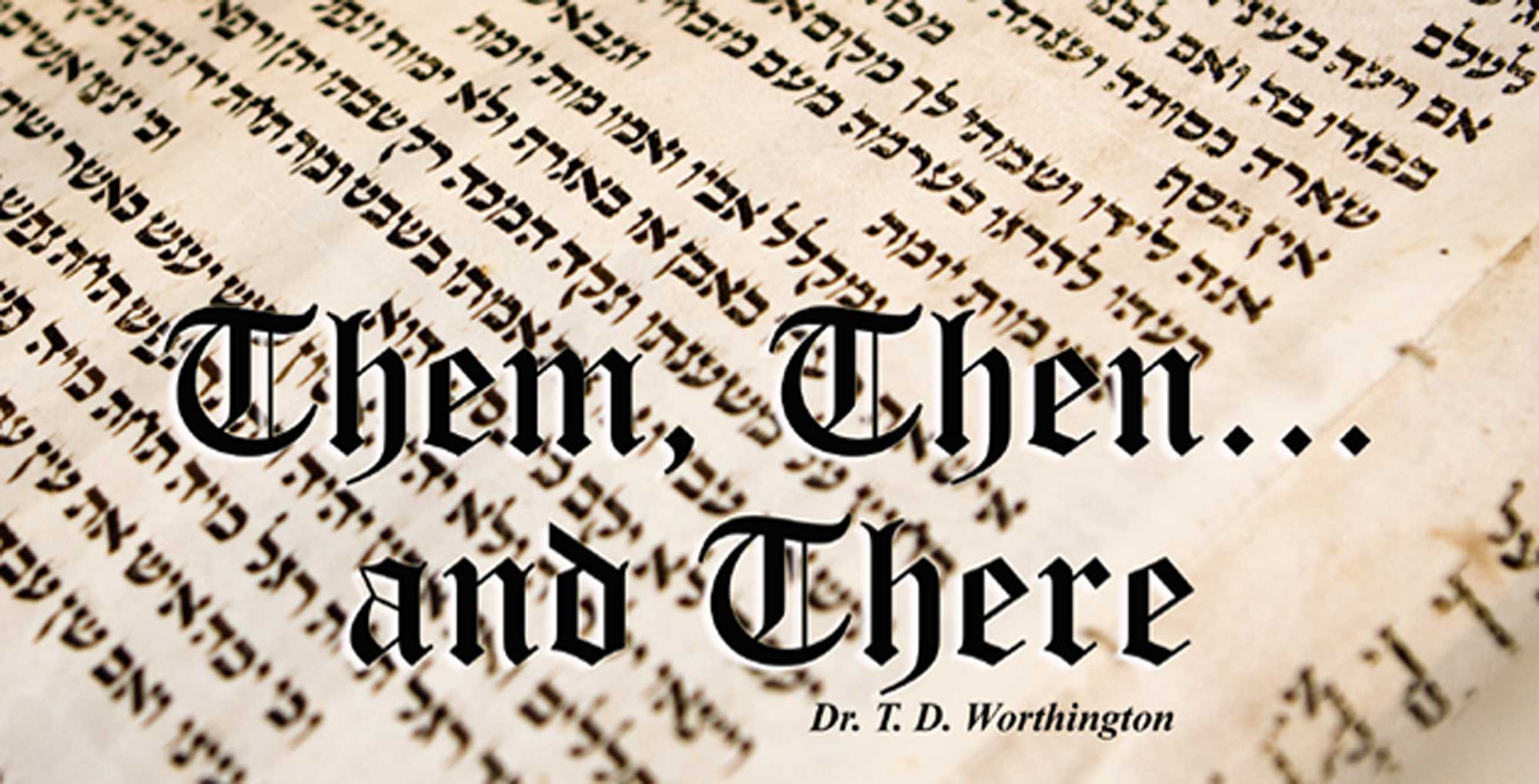
Now all these things happened unto them for ensamples: and they are written for our admonition, upon whom the ends of the world are come. I Corinthians 10:11
I have read, more than once, the story about the children of Israel in bondage in Egypt. It was a good story, but it was a good story about them, then, there. I’ve read on many occasions about problems that Paul addressed in his letters to the churches. These are Holy Spirit inspired narratives that address strengths and weaknesses in the church. But again, it is about them, then, and there. They are all good stories, but if we assume it is just about them, then, and there we are missing the point.
It is not just a story about them, then, there. It is my story, and it is your story. It is a story for us, now, and here. My Egypt, or my Corinth, or my Ephesus is different from theirs, but I can learn from the Word of God just as they could.
What about you? Maybe you could tell of a story about when you were stuck and in bondage like the children of Israel. Maybe it was a job, a relationship, a feeling, a grief, an addiction. We’ve all been to Egypt. And we’ve all wandered in the wilderness. The wilderness is a place in life when what was is no longer, and what will be is not clear yet. We might feel lost, angry, scared, frustrated, and maybe even ready to go back to the old place despite not liking it or really wanting to be there. Sometimes in the wilderness even Egypt can look attractive. It often feels like we’re going in circles. There should be a more direct route, the map says there is, but the wilderness is a place of working out life as we head toward the Promised Land.
And how about those times when we finally arrive? We’re in the zone, life has come together in a beautiful way, and we feel we’ve arrived in our promised land, often after much time and hard work. We could each tell stories about that as well.
It’s one thing to read the Bible stories, it’s another to live them and apply them to our own lives. That can be a real challenge for all of us.
As an older fellow, it annoys me that many young people cannot read a map. But still, it is one thing to read and understand the map. It’s another to actually walk the terrain and feel the sand between your toes, get lost in it, stumble or fall down, discover unexpected beauty, or find one’s self in the process of finding one’s way across the land. None of those things can happen when we stay home and just read the map or read the story of someone else’s adventures. I wonder if we sometimes do that with the Scriptures; treat them as someone else’s stories and experiences of wandering and getting lost, falling down, experiencing mountain top beauty, finding a new life in places never expected. I wonder if we sometimes let the particularities of the stories, distance us from that story in our lives.
I do not want to deny the historical meaning or value of the Scriptures, but neither do I want to relegate them to a bunch of ancient stories that have very little to do with the here and now. After all, what good is it to us if Mary is full of grace and we are not? What good is it to us if Jesus is born in a stable in Bethlehem, if he not also born in us? What good is it to us if the blind man’s eyes were opened if our eyes are not also opened to a new vision, new insights, and a new way of seeing? What good is it to us if Jesus is resurrected and we are not also resurrected to newness of life?
So, what if rather than just reading the Bible, we let the Bible read us. What if rather than just knowing the Bible, we let the Bible help us to know ourselves. What if instead of just trying to discover the meaning and relevance of the Scriptures we let the Scriptures reveal meaning and relevance in our lives? Rather than trying to fit God’s story into our lives we fit our lives into God’s story. The Word of God takes on a deeper meaning and relevance, when we embody and live the word, that is, when the word becomes flesh in us.
So, what if we let the words of Scripture become flesh in us? What would that look like in your life? How might you live and embody the words? And when we do that, the Word becomes flesh and fresh as it takes new life among us in the now and here.
Dr. Worthington has been in the ministry over forty years and serves as President of Pathway Ministries.
